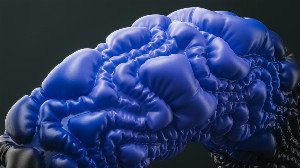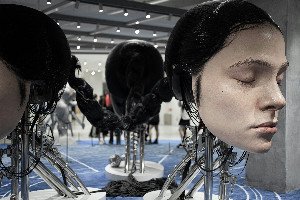muh ibnu sholeh sholeh
Dialektika Antara Akal dan Wahyu dalam Aqidah Filsafat Islam: Harmoni atau Konflik
Introduction
Dialektika antara akal dan wahyu dalam aqidah filsafat islam: harmoni atau konflik. Menganalisis dialektika akal dan wahyu dalam aqidah filsafat Islam. Menjelajahi harmoni vs. konflik serta merumuskan integrasi inklusif dengan sains modern untuk pemikiran kontemporer.
Abstract
This study aims to find the dialectics between reason and revelation in the understanding of aqeedah in Islamic philosophy, to understand whether there is harmony conflict the interaction between reason and revelation in Islamic aqeedah, to formulate a more inclusive perspective in integrating this understanding with the development science and thought. modern. The method used this study is library research method, literature studies obtained from various sources such as scientific journals, books, seminar papers, and other publications related to research topics both offline and online, data obtained analyzed using interactive qualitative model. This data analysis model consists data collection, data reduction, data presentation, and conclusion. The results research show that understanding Islamic aqeedah, dialectic between reason and revelation reflects complicated interaction between human rational abilities and divine guidance. Although reason contemplates reality of God with limitations, revelation as God's direct guidance has main authority in aqeedah. Islamic thinkers seek to combine reason and revelation through ijtihad and ta'wil, making them central elements the evolution religious thought. The interaction reason and revelation in Islamic aqeedah raises challenges of harmony and conflict. There have been attempts to align the two with the view that true reason will support revelation, but sometimes reason and the teachings revelation are incompatible. An inclusive perspective in integrating reason and revelation Islamic aqeedah with the development modern science involves consideringtwo complementary, using concept ijtihad for adaptation, taking into account the views omodern Muslim scholars, and encouraging dialogue between religion and science in order to create sustainable harmony.
Review
This study critically examines the enduring and fundamental dialectic between reason (*akal*) and revelation (*wahyu*) within the context of Islamic philosophical creed (*aqeedah*). The paper sets out with clear objectives: to map this intellectual interplay, ascertain instances of harmony or conflict, and ultimately propose an inclusive framework for integrating these foundational sources with the advancements of modern science and thought. Employing a library research methodology, the authors draw upon a wide array of academic sources, analyzed qualitatively through an interactive model. This approach is well-suited for a topic that delves into historical theological and philosophical debates, promising a thorough and comprehensive review of existing literature and perspectives. The research successfully highlights the intricate nature of this interaction, acknowledging both the inherent limitations of human reason in fully grasping divine reality and the supreme authority of revelation in matters of faith. A significant finding is the historical and ongoing efforts by Islamic thinkers to reconcile these two sources through *ijtihad* (independent reasoning) and *ta'wil* (interpretive explanation), illustrating how these methods have been central to the evolution of religious thought despite sometimes revealing incompatibilities. Crucially, the study culminates in an inclusive perspective that advocates for viewing reason and revelation as complementary, utilizing *ijtihad* for adaptive interpretations, incorporating the insights of contemporary Muslim scholars, and fostering a robust dialogue between religious principles and scientific discovery to achieve sustainable harmony. While the abstract presents a compelling overview of the study's scope and findings, the full paper would benefit from a more detailed exposition of specific historical case studies where the tension between reason and revelation became particularly pronounced, and how these were resolved or continued to be debated. Further elaboration on the methodologies of *ijtihad* and *ta'wil* employed by different thinkers, and concrete examples of how "modern science" specifically challenges or aligns with *aqeedah*, would strengthen the proposed inclusive framework. Nevertheless, this paper addresses a crucial and perennial topic in Islamic thought, offering a nuanced analysis of its complexities and proposing a forward-looking, integrative approach that holds significant value for contemporary discourse on faith, reason, and scientific progress.
Full Text
You need to be logged in to view the full text and Download file of this article - Dialektika Antara Akal dan Wahyu dalam Aqidah Filsafat Islam: Harmoni atau Konflik from PUTIH: Jurnal Pengetahuan Tentang Ilmu dan Hikmah .
Login to View Full Text And DownloadComments
You need to be logged in to post a comment.
Top Blogs by Rating
Are You Just a Colony? The Int...
By Sciaria
Beyond Impatience: A Philosoph...
By Sciaria
Bending Light, Shaping Reality...
By Sciaria
Favorite Blog
The Invisible Load: Unveiling...
By Sciaria
Unlock Your Brainpower: Master...
By Sciaria
The Evolution of Knowledge in...
By Sciaria
Related Research
Evaluation of the implementation of clinical pharmacy service standards based on minister of health regulation number 72 of 2016 at elim rantepao hospital
Estimasi sumberdaya endapan terukur nikel laterit dengan menggunakan metode inverse distance weighting
Optimizing parameters of xylenol neodymium imprinted polymers (nd-ips) for neodymium (iii) ions adsorption
Share
Notice Board
- MODEL COOPERATIVE LEARNING SEBAGAI PENGEMBANGAN LESSON PLAN PADA SUB MATERI PROTISTA MIRIP HEWAN DI TINGKAT SMA/MA
- PREDICTIVE ANALYSIS OF THE NATIONAL DEFENSE INDEX (IBN) ON NATIONAL RESILIENCE USING CLASSIFICATION AND REGRESSION TREES (CART) METHOD
- TRAINING ON THE USE OF THE PADLET PLATFORM AS A DIGITAL LEARNING MEDIA FOR ELEMENTARY SCHOOL TEACHERS





